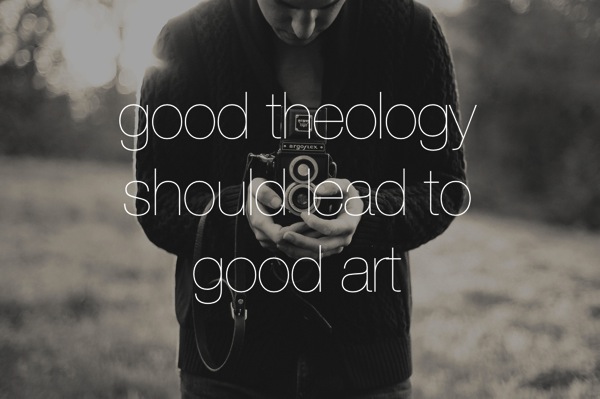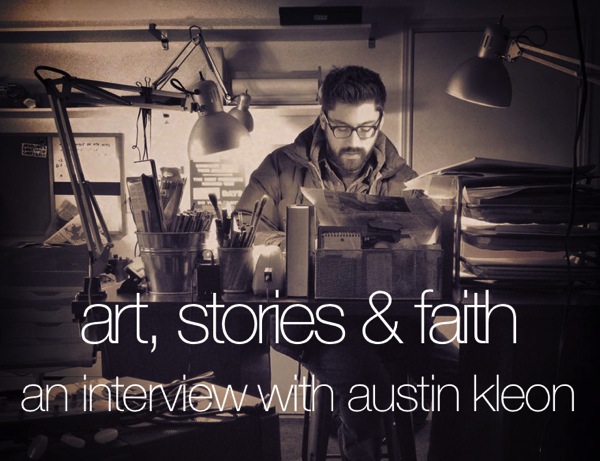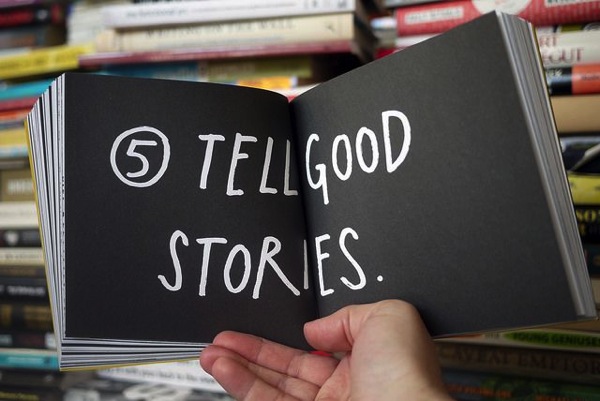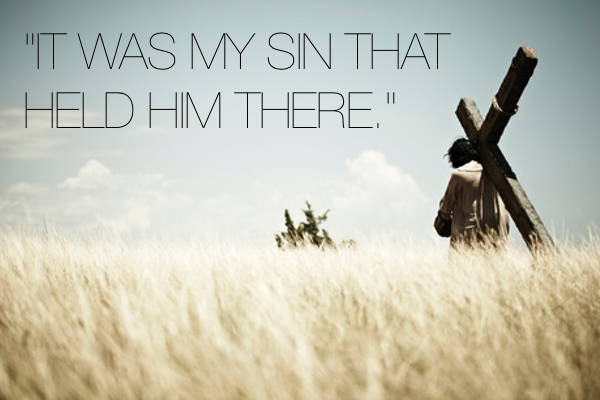Viewing entries in
Ministry
 There was a day when the church was known for its artists. Da Vinci famously painted the Last Supper, Michaelangelo painted the Sistine Chapel, and J.S. Bach wrote music influenced by his Christian faith. In not quite as distant history, C.S. Lewis and J.R.R. Tolkien wrote classic works influenced by their Christian faith. Unfortunately, when we think of the church in today’s culture, we do not likely think of art. And this is not about the buildings; because although our building may no longer be painted or built the same way, our churches are still full of music, design, film, performance art, and writing.
There was a day when the church was known for its artists. Da Vinci famously painted the Last Supper, Michaelangelo painted the Sistine Chapel, and J.S. Bach wrote music influenced by his Christian faith. In not quite as distant history, C.S. Lewis and J.R.R. Tolkien wrote classic works influenced by their Christian faith. Unfortunately, when we think of the church in today’s culture, we do not likely think of art. And this is not about the buildings; because although our building may no longer be painted or built the same way, our churches are still full of music, design, film, performance art, and writing.
In the 21st century, art in the church tends to get associated with mediocre music, preachy films, or copycat designs.
This shouldn’t be. Our life-changing theology should lead to art that is not simply “Good for Christian art” but instead just “Good, period.” Christians should be making the best art, because we have the most compelling story to tell. Our theology clings to the divine story of redemption and that should inspire the best art.
The stories we tell.
Academia likes information and speaks to the mind. Art prefers a compelling story and speaks to the heart. And both of these are important. It is important that we are able to have a systematic theology and understand the complexities of our doctrine, but it is also important that our doctrines are interwined with the divine story.
A friend of mine said, “Stories are equipment for living.”
Stories help give words and life to the theology that we carry with us into everyday life. And since good theology is interested not simply in our Sunday mornings, but our Monday through Friday too, stories become deeply important. Good theology always has a story to tell.
The theologian C.F.W. Walther spoke of the doctrine of Law and Gospel as an artist when he said, "Rightly distinguishing the Law and the Gospel is the most difficult and the highest art of Christians in general and of theologians in particular. It is taught only by the Holy Spirit in the school of experience.”
This is fascinating, because Walther describes something that I’d never consider art as an art form. He somehow sees his pastoring as an art. Just as an artist decides which colors to use, which words to write, and which scenes to cut, so also the theologian has to determine which stories to tell, which words to say, and which scriptures to teach. The theologian will always be an artist because the theologian must be a story-teller.
So the question then becomes, is he a good one?
Is the theologian telling a compelling story when he re-tells the divine story? Is he showcasing this story with beautiful art? Is the preaching, writing, music, design, and film showcasing this same divine story? We are all theologians, we are all story-tellers, and the story we tell should inspire beautiful art.
And whether or not we see ourselves as artistic, our theology should absolutely inspire our desire to share the compelling story to those around us. And if we are sharing this story with those around us, we are artists. Because as artists, as we decide what to share from our own story and from the divine story, we are deciding what colors will go on the canvas and what colors will be left out in order to paint a picture of the God we know and love.
What’s your art?
 Ministry is art. Some of ministry is what we traditionally think of as art: things like music, design, writing, and preaching. And some of ministry is less often seen as art: things like counseling, getting to know a student, or mourning with a family who has lost a loved one. All of these require creativity. They require the creativity in choosing what to say and what not to say. Creativity in deciding what stories to tell, how to tell them, and when they should be told. This is art; we are telling stories. We are sharing our own stories, the stories of others, and the story of Scripture.
Ministry is art. Some of ministry is what we traditionally think of as art: things like music, design, writing, and preaching. And some of ministry is less often seen as art: things like counseling, getting to know a student, or mourning with a family who has lost a loved one. All of these require creativity. They require the creativity in choosing what to say and what not to say. Creativity in deciding what stories to tell, how to tell them, and when they should be told. This is art; we are telling stories. We are sharing our own stories, the stories of others, and the story of Scripture.
This is the work of an artist.
I recently got a chance to talk with a brilliant artist and author, Austin Kleon and ask him some questions about art and faith and how the two interact. I’ve been a huge fan of Austin’s work. As a preacher and writer, I’ve been inspired by both Steal Like An Artist and Show Your Work. Since Austin just released his new book, which has already hit the New York Times bestseller list, I thought it would be interesting to ask him some questions related to creativity and faith. Although Austin doesn’t do his art for the church, I think those of us making art in our churches can learn a lot from Austin’s insights.
[gss-content-box color="gray”] Austin Kleon is a New York Times bestselling author. He has published three illustrated books: Steal Like An Artist is a manifesto for creativity in the digital age; Newspaper Blackout is a collection of poetry made by redacting words from newspaper articles with a permanent marker; and Show Your Work! is a guide to sharing your creativity with the world.[/gss-content-box]
ME: There was a day when religious institutions, like churches, were known for their art. Artists like Bach, Michaelangelo, and Da Vinci were inspired by their faith and produced brilliant work. What do you see as the relation between faith and art?
Austin: I was watching an old Curtis Mayfield interview in which he talked about all the music in him as stemming from the church. Chris Rock has talked about hanging out with his preacher grandfather, and what an influence he was on his work. Barry Hannah has talked about the influence of The Bible on his prose. Mary Karr talks a lot about her faith.
Those are all just randomly picked from my files. I think religion still has a major influence, if not an explicit one.
The church influenced me greatly when I was growing up. I was a member of a Methodist church, a very buttoned up, bland, harmless, business-like place, with handshakes, donuts, and coffee in the parlor. But there was a wonderful choir director there, and I sang in the choir until my voice changed and I quit. The music is actually what I remember most, and I think that's where a good deal of my love for it started.
If anyone has a direct line upstairs, it's my grandmother, and my other grandmother played organ and piano in the church. My dad has recently been saved and is singing in the choir and guest ministering. My uncle is an actual minister.
So the church has always been a big part of my life — and I'm sure it in some way, even if not consciously, runs through my work. My dad keeps telling me he hopes I become a preacher some day.
ME: Churches are sharing the same basic message every single week. How do you share something that has been shared by thousands of different people and thousands of times in a way that is inspiring?
Austin: Well, Andre Gide said everything has been said before, but no one was listening, so we have to say it again. I think it's the same problem a novelist has: there are only so many plots, you know? You just have to constantly "make it new" as Ezra Pound put it.

ME: In your book Show Your Work, you wrote,
“Every email you send, every text, every conversation, every blog comment, every tweet, every photo, every video - they’re all bits and pieces of a multimedia narrative you’re constructing. If you want to be more effective when sharing yourself and your work, you need to become a better storyteller.”
For people trying to figure out how to become good storytellers, what should they be reading, and watching, listening to?
Austin: They should surround themselves with good stories. They should read fairy tales, myths, and novels. They should watch great films, go see great speakers, listen when they're out in the world. My mother, for example, I never realized it until recently, but she's a really great storyteller. A natural. And somehow I never noticed until I actually became a student of storytelling. But it's very, very hard to get good at, and like everything else, takes a lot of practice. Some of the storytellers I’ve learned the most from are Carl Jung, Joseph Campbell, and Bruno Bettelheim.
ME: Churches as a whole in the United States are in decline. Do you think sharing art and telling a compelling story can help change this?
Austin: I honestly don't know. One of the most interesting books I've read on the subject recently is Alain de Botton's Religion For Atheists. de Botton's jist is that we should be able to steal or borrow many things that religion does well without subscribing to a belief in God. I think what churches could do is look at these things de Botton is pointing to, and to say, "Well, we already have these, and we do it well," and to emphasize those things.
I think this is why I'm interested in the practices of religion: the verbs. Singing, prayer, meditation, contemplation, service, etc. Personally, I am mostly turned off by the idea that faith is something that happens in the head and not with the body out in the world. I think what happens to a lot of artists is that they replace religion with art. A lot wouldn't ever admit that, but I think it's true. When I think of drawing or writing, I think of them as practices, or daily devotionals.
ME: One of your chapters in your book is called, “Shut up and listen.” The reformer Martin Luther once said regarding preachers that they should, “Stand up, speak up, and shut up.” What makes shutting up so important?
Austin: I would imagine that listening influences their art the same way that it does everyone: when you listen, you learn. You need input so you can continue your output. There was a great quote from Richard Ford, he said, when people know you're listening, they tell you things.
 The hardest part of any project is not the beginning or the end of the project, but the middle. Whenever I start a new project, the beginning stages are filled with excitement. My whiteboard gets filled with ideas and possibilities; my conversations are filled with passion as the potential of my new idea is virtually limitless. When I finish a project, there is again great excitement as I get so see a project come to fruition; there is a sense of pride and ownership as a new creation is done. But what about the middle?
The hardest part of any project is not the beginning or the end of the project, but the middle. Whenever I start a new project, the beginning stages are filled with excitement. My whiteboard gets filled with ideas and possibilities; my conversations are filled with passion as the potential of my new idea is virtually limitless. When I finish a project, there is again great excitement as I get so see a project come to fruition; there is a sense of pride and ownership as a new creation is done. But what about the middle?
Every project will inevitably face the project plateau; that moment when the motivation and excitement quickly fade and the finish line starts to seem like it will never come. The middle of a project is the most difficult. But it is also the part of the project that separates those that succeed and those that don't. It's the part of the artistic process that separates the occasional one-hit wonder from the art legends. It's easy for us to see the allure of creativity - whether that be creating music, sermons, events, films, or something else - and completely overlook the blood, sweat, and tears that are required to make great art.
"Genius is one percent inspiration and ninety-nine percent perspiration." - Thomas Edison
The project plateau is the moment in your project when you start to hit the wall of resistance. It stops being exciting and you actually have to discipline yourself to work another two hours. It stops being endless amounts of creative ideas and instead requires you to force yourself into editing mode. The only way to survive the project plateau is to persevere through it. It sucks. But it's making it through those moments that allows you to not simply be somebody full of great ideas without ever delivering. It's making it through those moments that allows you to not simply have a decent idea, but something that you can be truly proud of.
Photo Credit: reillyandrew
I've had a love for the theological depth of great hymns lately. Because of that I put together a Spotify playlist of some of my favorite arrangements of some great classics.
Matt Chandler is one of the best communicators of the Gospel and if I could ever sit down with someone and talk preaching, he would be at the top of my list.
Theology and Doxology are deeply intertwined. Theology isn't exclusive to the business of pastors and doxology isn't exclusive to the musicians and rock stars.
 "Fear. It was fear that killed my parents. On the far side of the world, I tasted fear in it’s purest form and thought I’d conquered it. But, fear followed me home...” - Batman
"Fear. It was fear that killed my parents. On the far side of the world, I tasted fear in it’s purest form and thought I’d conquered it. But, fear followed me home...” - Batman
I have to make a confession; I am afraid of most animals. I think they are all cute and stuff, but at the end of the day I want to keep myself at a distance and be ready in case they attack. Perhaps my fear of animals is silly and I just need to get over my dog destroying my G.I. Joes when I was a little boy, but don’t we all have fears?
What do you fear?
Fear will always cause a person to react. If you are afraid of getting pulled over by a cop, you will drive slower. If you are afraid of getting caught cheating, you will either avoid cheating or be more secretive about it. Fear might cause you to run away or it might cause you get ready to fight. Depending on how you view God, you might look at him with fear. If the thought of God causes you to be afraid, it will cause you to react. You might react by rebelling against him, you might react by ignoring him, or you might even react by doing what he says with hopes that you might appease him.
If you are afraid of God, what do when something bad happens? Certainly fear would lead you to think, “Perhaps God is punishing me.” In 1 Kings 18, there are a group of prophets worshipping their god in hopes that they will get him to pay attention. They shout, they dance, the cut themselves. But nothing. In their view of god, what do they do? Was their god too tired? Was he busy dealing with somebody more important? Did they screw something up and he didn’t care anymore?
“In this way, love is made complete among us so that we will have confidence on the day of judgement, because in this world we are like Him. There is no fear in love. But perfect love drives out fear, because fear has to do with punishment. The one who fears is not made perfect in love. We love because he first loved us.” - 1 John 4:17-19
We don’t need to be afraid of God. We can approach him confidently because of what we know about him. While we are certainly sinners, because of the fact that Jesus suffered and died to pay the price for our sins, we can approach God confidently knowing that our relationships have been made right with him. Because of Jesus, we don't need to be afraid. The sacrifice of Jesus drives out this feeling of being afraid that might creep into our relationship with Him.
At the same time, Psalm 111:10 says, “The fear of the LORD is the beginning of wisdom.” This is another kind of fear. This is the fear that looks at God in awe and reverence. This is the fear that doesn’t cause us to react in a way that’s afraid of God but in a way that trusts God. The devil seeks to drive us to being afraid. He seeks to make us afraid, which might lead us to react in anger or rebellion. But God seeks to drive out that kind of fear and instead drive us to a fear that trusts because “He first loved us.”
We live in a world that is all about having more stuff. We want more apps, more music, a new phone, a new video game, more friends, and so on
[tentblogger-vimeo 24715531]
"Nobody tells this to people who are beginners, I wish someone told me. All of us who do creative work, we get into it because we have good taste. But there is this gap. For the first couple years you make stuff, it’s just not that good. It’s trying to be good, it has potential, but it’s not." - Ira Glass
HT: Echo Hub
 God. Religion. Consumerism. Confession. Sin. Truth. Marriage. Money. If these were the words of a preacher, it would be no surprise. Ben Haggerty, commonly known as Macklemore, has made fame rapping, or should I say preaching, about topics which often are undiscussed in the genre of hip-hop. He writes words like, "The greatest trick that the devil ever pulled was convincing women that they looked better in makeup" and, "When I was at church they taught me something else, if you preach hate at the service those words aren't anointed."
God. Religion. Consumerism. Confession. Sin. Truth. Marriage. Money. If these were the words of a preacher, it would be no surprise. Ben Haggerty, commonly known as Macklemore, has made fame rapping, or should I say preaching, about topics which often are undiscussed in the genre of hip-hop. He writes words like, "The greatest trick that the devil ever pulled was convincing women that they looked better in makeup" and, "When I was at church they taught me something else, if you preach hate at the service those words aren't anointed."
Macklemore is a preacher. He may not have the same agenda, the same source of truth, or even the same beliefs. But he is a preacher. He has set out to proclaim a message; he has set out to inspire people and start a movement. He wants to change culture. And I think preachers could learn a few things from the way he approaches his art.
1. People want to talk about spiritual things.
For Macklemore, spiritual topics are not off limits. He has no problem getting into spiritual discussions in interviews or in the lyrics of his songs; whether to proclaim what's wrong with religion or to point out what's wrong with society, spirituality is a frequent component of his music. People want to talk about the things that matter. Macklemore's album calls out the problems with commercialism and the dangers of money, he preaches about his beliefs about gay marriage, and he talks about his confession habits as he goes to the bar. These are all topics that preachers talk about…and people want to talk about it.
2. Put yourself in the seat of the listener.
"I put myself in the place of the listener when editing my writing. The last thing that I want to do is be preached at and told who to be or what to think when listening to an artist. However, I do want to be inspired. There's a fine line." - Macklemore from Interview Magazine
When Paul preaches the Gospel he understands the people that he is preaching to. The content of the message doesn't change, but the context of the message does. When he preaches to the Jews, he preaches in a way that resonates with a Jew. When he is preaching to a group of spiritual people who aren't familiar with the Hebrew scriptures, he quotes pagan prophets and poets to share the Gospel. In order to preach the scriptures faithfully, we must be committed to both the content of the Word and the context of the people.
[tentblogger-youtube gAg3uMlNyHA]
*note: this video may have some explicit lyrics
3. Inspire people to something better.
In the song Wing$, Mackelmore boldly calls people to leave their lives of consumerism:
"It started out with what I wear to school That first day, like these are what make you cool And this pair, this would be my parachute So much more than just a pair of shoes Nah, this is what I am What I wore, this is the source of my youth This dream that they sold to you For a hundred dollars and some change Consumption is in the veins And now I see it's just another pair of shoes"
Macklemore preaches by pointing us to the reality of what consumerism does and tries to inspire us to live differently. This is not all that different than what happens on a Sunday morning - just what we do on Sundays tends to not be nearly as artistic or memorable. Macklemore points people to the reality of consumerism or whatever other issue he is rapping about. Preaching points people to the reality of their sin and the consequences of it (which could even be the sin of consumerism). Macklemore tries to inspire people to live differently. Preaching proclaims the Gospel, which sets people free and in turn inspires people to live differently.
What lessons have you learned about preaching recently?
Who are you? My first instinct, if I’m trying to answer that question, is to start by describing myself. I might describe the roles that I have - a father, a husband, a youth minister.
In the Old Testament there was a group of people who wanted fame. They wanted nothing more than to make a name for themselves, and they decided the way to do this was to build a giant tower. In Genesis 11:4, they say “Come let us build ourselves a city, with a tower that reaches to the heavens, so that we may make a name for ourselves...”
Isn’t this exactly what we so often do? We do whatever we can to make a name for ourselves. We try to get tons of friends on facebook, followers on twitter, or likes on instagram. But, why? Because we want people to be impressed with us. This is called “pride.” Pride the feelings you get when you do something good. So you feel prideful because you feel popular if people follow you or like your stuff. You might feel pride if you are the prettiest girl in the school. You might feel pride if you get paid more than your co-workers.
When I was growing up, I had dreams of being famous. My dreams meant I would be a famous basketball player. I dreamed of the day I would run out onto the court as the announcer called out my name. Maybe for you, you have similar dreams. Maybe you dream of being a famous actor, athlete, or writer. There’s nothing wrong with those dreams, but I want to challenge you to make it an even greater priority to pursue making Jesus famous. I’m not saying not to pursue your basketball career or writing, but in the midst of those make your goal to make Jesus famous, not yourself.
HE > ME
When Jesus first comes on the ministry scene, he’s not the big deal in town. In fact, there’s a guy by the name of John who is baptizing a bunch of people and has gotten quite the following. As Jesus‘ following grows, John is questioned about what he thinks about all this. In John 3:26, some of John’s disciples ask, “that man who was with you on the other side of the Jordan - the one you testified about - well, he is baptizing, and everyone is going to him.”
John responds with an answer that I think should guide the way we live our lives. John says, “He must become greater; I must become less.”
Nowhere in our world will somebody tell you that you should pursue becoming less of a big deal. But John is pursing this. He has no problem that he is becoming less of a big deal because in his case that means that Jesus is becoming more of a big deal. What would your life look like if you lived in a way that everything you did was so that Jesus might become a bigger deal?
“Whether you eat or drink or whatever you do, do it all for the glory of God.” - 1 Corinthians 10:3
In everything you do, you can glorify God. When you go to school, live in a way that makes a big deal of Jesus. Let your choices be guided by making Jesus a big deal. When you hang out with your friends, glorify God. When you are with your family, make Jesus a big deal. When you are playing video games, glorify God.
Is it every pretty when we get angry? When I get angry, I make stupid decisions.
 Erik Wahl recently was a keynote presenter at Western Michigan's Food Marketing Conference. I had absolutely no interest in the food marketing conference itself, but having become a recent fan of Erik's artwork and speaking, I found a way to attend his keynote and finally get a chance to see him perform live. The primary reason that I have been so interested with Erik Wahl is that he is an excellent communicator. And as a preacher who loves the art of preaching, there is a value in seeing an artist showcase his craft and try to learn a few tricks.
Erik Wahl recently was a keynote presenter at Western Michigan's Food Marketing Conference. I had absolutely no interest in the food marketing conference itself, but having become a recent fan of Erik's artwork and speaking, I found a way to attend his keynote and finally get a chance to see him perform live. The primary reason that I have been so interested with Erik Wahl is that he is an excellent communicator. And as a preacher who loves the art of preaching, there is a value in seeing an artist showcase his craft and try to learn a few tricks.
If you haven't seen any of Erik's work, you can find a video later in the post of one of his pieces.
3 Lessons on Preaching from Erik Wahl
1. You are an artist.
If you ask a room full of adults, "How many of you draw?," you will not likely get very many hands. The same would probably be true of preachers. If you asked a Kindergarten classroom this same question though, the results would be completely different. Something happens as we grow older, and we begin to believe we aren't artists. We believe we aren't creative. We've been told that certain things have to be done a certain way in order to get the results that you are expected to get. When it comes to preaching, I love looking at the sermon as a work of art. When I work on my sermon I want to actually believe that I'm creating a work of art that makes a difference.
[tentblogger-vimeo 35737101]
2. Timing is important.
When Erik was painting one of his pictures, he perfectly timed his painting so that as the music finished, he would spray paint an apple on the canvas, ask us to "think different" and rotate the canvas in order to reveal that the painting was Steve Jobs. When I preach, I spend a lot of time working on the content of my message and even specifically crafting the order of my content, but an area where I can improve in understanding the significance of the timing in how I say certain things. The rhythm, the pacing, the tone, and pauses all help communicate. And those are things that are easy to forget about and can only really be perfected by practicing.
3. Your talk doesn't end when you end.
As Erik neared the end of his keynote, he described the significance of social media and it's implications for all the people in the food industry. As he described the significance of social media, he also let the entire room know his plans of doing an "art drop" by giving a clue via Facebook at 10:01pm. The art drop is brilliant in and of itself, but engaging the audience by encouraging them to participate in this art drop was even more brilliant. This social media illustration would be experienced by the audience even after the keynote was finished and participants had left the building. What would our sermons look like if they didn't end when we prayed? What if our sermons engaged people still on Monday?
Who is someone that is not in ministry that you've learned some lessons about ministry from?

